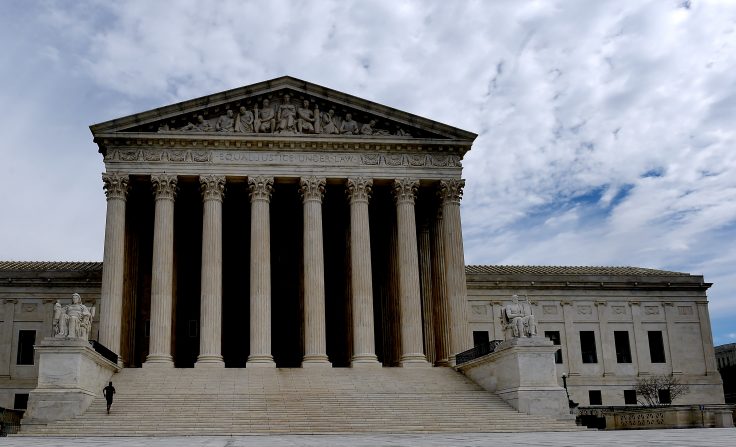Victims of the 1998 U.S. embassy bombings in East Africa are entitled to $4 billion in punitive damages from the government of Sudan, the Supreme Court ruled Monday.
Survivors and family members of the deceased are engaged in a long-running lawsuit with Sudan over the country's complicity in the attack. In 2008, Congress passed a law allowing terror victims to collect punitive damages from foreign governments that support extremism. At stake in Monday's case was whether that law allows punitive damages for attacks that took place before 2008.
The High Court unanimously ruled that it does.
"Congress was as clear as it could have been when it authorized plaintiffs to seek and win punitive damages for past conduct," Justice Neil Gorsuch wrote. Justice Brett Kavanaugh was recused from the dispute.
The decision will affect dozens of other lawsuits from victims seeking damages for acts of terror in the 1990s and early 2000s. The plaintiffs in Monday's case said in court filings that they have identified 75 other disputes in which victims have won or are seeking punitive damages from countries such as North Korea and Iran for conduct predating 2008.
Though the federal government generally gives foreign countries immunity in U.S. courts, there is an exemption for state sponsors of terror. The Department of State designated Sudan a sponsor of terrorism in 1993.
Over 200 people were killed and another 4,000 were injured when al-Qaeda operatives simultaneously detonated truck bombs outside American diplomatic facilities in Kenya and Tanzania. Hundreds of victims sued the Sudanese government in U.S. courts beginning in 2001.
U.S. District Judge John Bates entered a $10.2 billion judgment against Sudan for its role in the attack. That judgment included $4.3 billion in punitive damages. Bates found that Sudan had an "open door policy for militant Islamic revolutionary groups" in the 1990s with the goal of seeding a global Islamist revolution. Sudanese officials provided safe haven for Osama bin Laden, furnished passports and intelligence for al-Qaeda operatives, and allowed the free movement of militants and arms over its border with Kenya, his decision said.
"The evidence strongly supports the conclusion that Sudan harbored and provided sanctuary to terrorists and their operational and logistical supply network leading up to the 1998 terrorist attacks on U.S. embassies in East Africa," Bates wrote at an earlier phase of the case.
Though the Sudanese government did not participate in the trial, it did hire lawyers to fight the $4.3 billion punitive damages award on appeal. The remaining $5.9 billion was not at issue in Monday's case.
The U.S. Court of Appeals for the D.C. Circuit sided with Sudan. The three-judge panel said Congress must give a clear statement if it means for a law to apply retroactively. The 2008 law gives "no clear textual command" on that point, the court ruled.
The High Court had less trouble parsing the statute.
"How much clearer-than-clear should we require Congress to be when authorizing the retroactive use of punitive damages?" Gorsuch wrote.
It is notoriously difficult for victims of terror to collect damages from foreign governments. U.S. personnel held hostage in Iran following the 1979 Islamic revolution only began to collect compensation after Congress established a special fund in 2015.
Some foreign states simply refuse to pay out damages awarded in U.S. courts. However, plaintiffs can get around an obstinate defendant and seize assets held in the United States or another friendly country. For example, victims of Iranian terror are pursuing $1.6 billion in frozen Iranian assets held in Luxembourg.
Such a process can take years and is not always successful. The Supreme Court rebuffed one such effort in 2018, ruling that victims of a 1997 Hamas bombing cannot confiscate Iranian artifacts from the University of Chicago’s Oriental Institute.
The lead plaintiff in Monday’s case is Monicah Okoba Opati. Her mother, Sellah Caroline Opati, worked at the U.S. embassy in Kenya and was killed in the attack. The Trump administration filed legal briefs supporting the plaintiffs.
The case is No. 17-1268 Opati v. Sudan.
Opati v. Republic of Sudan ... by Washington Free Beacon on Scribd
